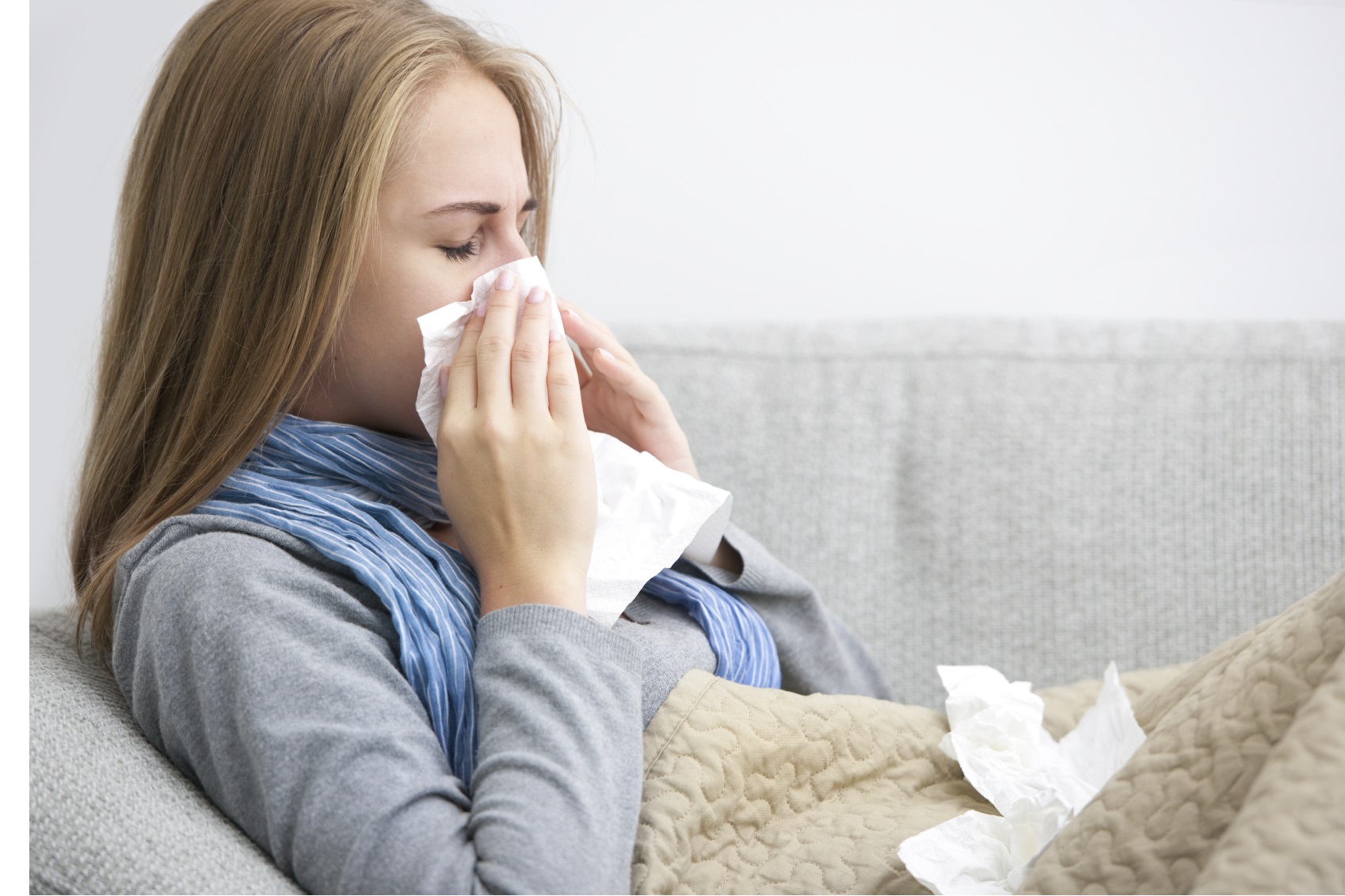
How many times have you had that internal debate about working when not feeling well? You really feel like staying home and resting, but at the same time, you worry about leaving your boss or co-workers in the lurch. Or, maybe you’re out of sick time and can’t afford to miss a day of work.
At these moments, it’s important to consider a few things:
- If you are sick you’re probably not going to be very productive at work.
- If your job requires you to interact with the public, you may not be representing the business well when you’re acutely ill.
- Last, but not least, because many germs spread easily from person to person, you may be inadvertently making the situation worse by spreading infection to co-workers and customers.
Making the decision to stay home from work can be difficult, but here are some general guidelines that may help you decide what to do when you have respiratory or gastrointestinal symptoms.
Fever: You should stay home until at least 24 hours after a fever* (temperature of 100 degrees Fahrenheit or higher) is gone. Temperature should be measured without the use of fever-reducing medicines.
In general, you tend to feel the worst and are likely most contagious at the beginning of an illness when you are running a fever. Fever is usually a strong reason to stay home and rest.
Cough and Congestion: Again, respiratory illnesses tend to be most contagious early on, becoming less so over time. Coughing and sneezing can spread germs over feet, not inches and secretions can end up on surfaces that others may touch.
If you are not running a fever and feel well enough to work, please make sure to cover your nose and mouth when coughing or sneezing and wash your hands frequently. Dispose of soiled tissues right away rather than setting them aside or tucking them in sleeves or pockets.
Vomiting and Diarrhea: Gastrointestinal illnesses may be easily spread, particularly in crowded and residential settings. Outbreaks occur more frequently in schools, daycares and nursing homes, for example. For practical reasons, most people stay home when they are vomiting but since diarrhea often lasts longer, it is tempting to hurry back to work before symptoms have completely resolved.
Be aware that thorough handwashing after bathroom use is essential to prevent spread at home or at work and that it is critically important to not be working if your job involves food preparation or service, or if you are working with vulnerable populations or in settings such as hospitals, nursing homes and daycares.
Reduce Your Risk
While it is not possible to avoid every virus and illness we’re exposed to, there are several things you can do to help reduce your risk of infection and to minimize the spread of infection to others.
Handwashing is the single most important way to limit spread of infectious illness. Proper handwashing technique involves several steps.
- Place your hands under warm running water.
- Apply soap and rub hands together for at least 20 seconds. In addition to washing your palms, make sure you scrub your wrists, the back of the hand, and under fingernails.
- Rinse soap from hands and dry hands with a clean towel. If a towel isn’t available, it’s ok to let your hands air dry.
- While soap and water are best for handwashing, if not immediately available, use an alcohol-based hand sanitizer to prevent the spread of illness.
Other tips to help reduce your risk of infection, include avoiding close contact and sharing food or drink with ill individuals. By the same token, if you are ill, stay home as much as possible to avoid exposing others.
Finally, regularly clean shared surfaces such as phones, keyboards and desks, particularly during the cold and flu season. Look for products that the Environmental Protection Agency has approved for use against Influenza A or make your own cleaning solution by adding 1 tablespoon of chlorine bleach to 1 quart of water. Just remember that bleach can ruin clothing.
Use these tips to enjoy a healthy new year. For additional information on preventing the spread of germs, please visit:
Healthy Habits to Prevent the Flu
Handwashing: Keeping Your Family Healthy
Handwashing and Hand Sanitizer Use at Home, at Play, and Out and About
